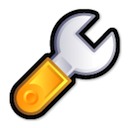The Conversion from Decimals to Integers

This afternoon I've been working very hard to convert all the prices and decimal numbers in my ticker plant codebase from float values to uint32_t values with a given getDecimalMultiplier() on each message. This came up in a meeting regarding some other group's use of the codebase, and they currently don't use floating point numbers - but rather an integer and a multiplier. OK... I can fix that, and so I did.
First thing was realizing that a uint32_t was sufficient as that would give me a 10,000 multiplier and values in excess of $400,000.00, when divided out. Good enough. Then I had to go into the code, replace all the values, add constructors and methods to take either the floating point number, and convert it to the proper integer, or take the integer and just use it.
The next thing was to look at the conversion/sampling functions on the exchange data. A lot of these take an integer mantissa and a divisor code and generate a float. What I needed to do was to alter these, or make similar functional versions, where they would take the same arguments and generate the correct integer representation of the value - offset by 10000 (my new offset). Again, not really hard, but it's detail work - making sure you get all the conversions done and don't loose any precision in the process.
Next, I created getters and setters for the messages that allowed the user to get the integer or floating point value at their choice. The scheme I used was to say that getPrice() got the decimal number and getPriceAsInt() got the biased integer. Pretty simple, and I don't think I'm going to have a lot of confusion here, which is very important.
Finally, with nothing but a few float values remaining - and the getters and setters using float arguments, I decided it was better to do a complete conversion to double and get rid of any float values in the processing. It's cleaner, more easily dealt with at the chip level, better scale and accuracy -- it's just better.
With this, I have everything stored as integers, with the multiplier available to the clients, and even decimal getters if they don't want to hassle with the conversions themselves. It's about as clean as I can imagine making it.